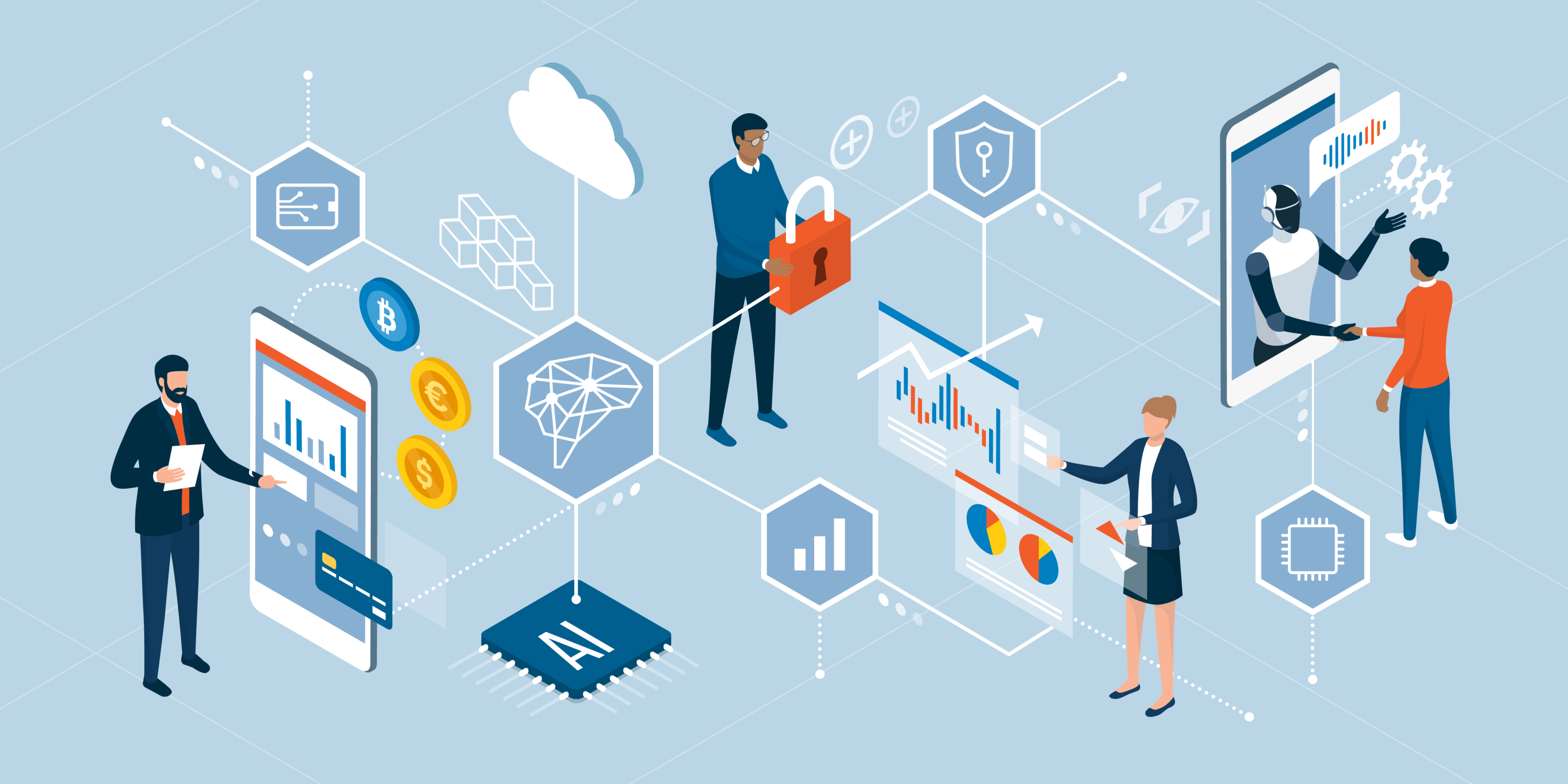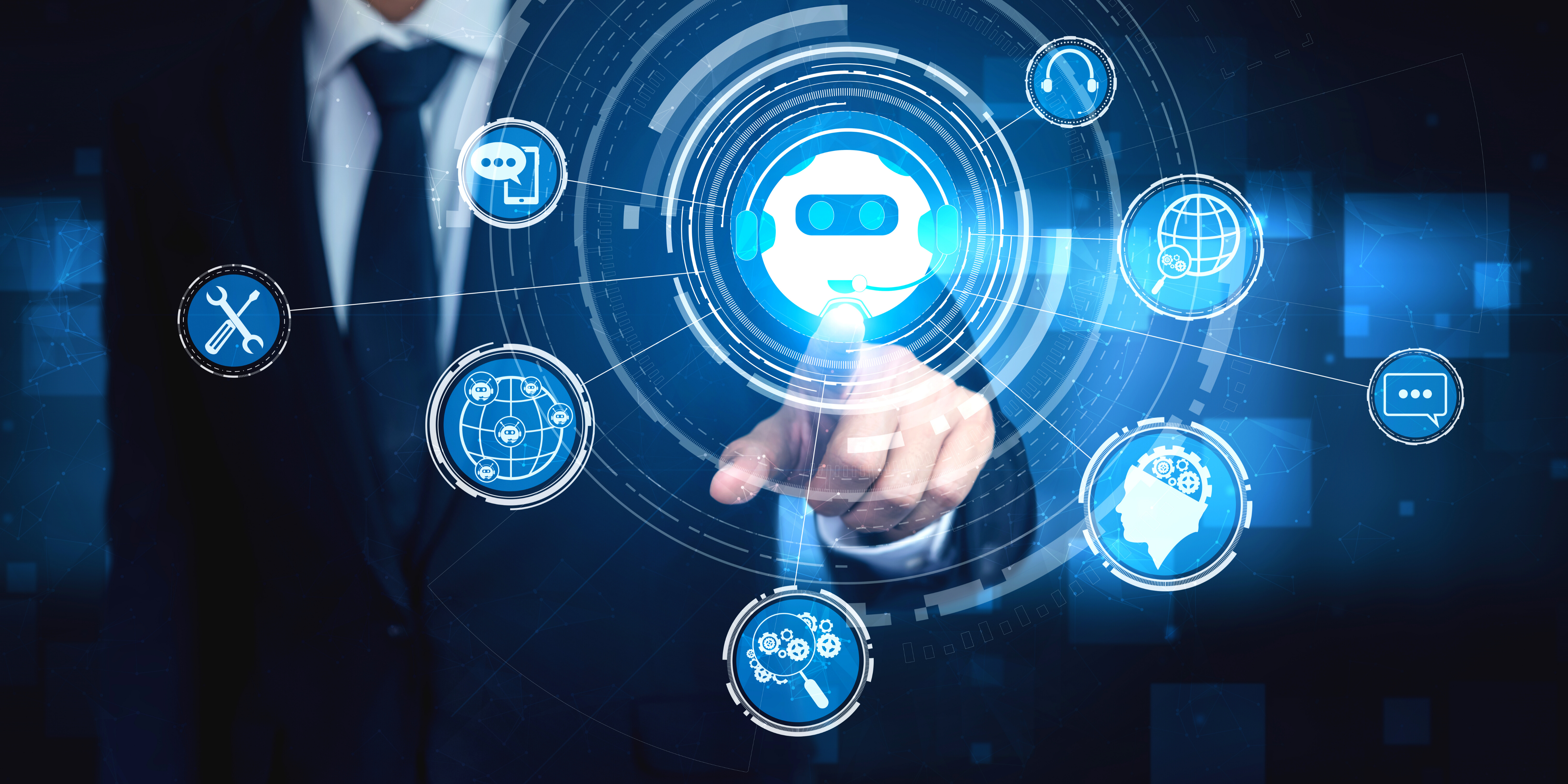The Top 5 Most Valuable Chatbot Use Cases

Is Your AI and Automation Strategy Right for You?
The term “chatbot” describes any intelligent software agent that communicates with users in a human-like manner: handling queries in English or another natural language, and responding in kind. Chatbots such as DRUID have earned widespread attention for their ability to hold sustained, often realistic conversations with human users.
But chatbots can be much more than a fun diversion like Cleverbot—they can radically improve your organization’s productivity and efficiency. According to IBM, chatbots can answer up to 80 percent of users’ routine queries by themselves, without needing to get help from a human agent. That’s one reason why intelligence firm Research and Markets projects that the global chatbot market will more than triple in value, from £1.9 billion in 2019 to £6.8 billion in 2024.
In this article, we’ll go over the benefits of using chatbots, as well as 5 of the sectors where chatbots can be most valuable and effective.
The benefits of chatbots
Although the precise impact of chatbots may vary depending on the industry and use case, nearly every organization can benefit from bringing chatbots into their workflow. The advantages of using chatbots include:
- Lower costs: By offloading routine queries onto chatbots instead of human agents, businesses can lower their customer service expenses. According to Chatbots Magazine, chatbots can automate as many as 30 percent of customer service tasks, representing a potential savings of $23 billion USD for businesses in the United States alone.
- Better customer service: Chatbots enable users to get answers to simple queries immediately, without having to queue for a human agent. What’s more, unlike human agents they can be available around the clock 24/7. By shortening wait times, chatbots let your business offer a better customer service experience. Meanwhile, human agents can have more time to address complex problems, without having to deal with the drudgery of routine issues.
5 use cases of chatbots in different industries

1. Local government
Local governments stand to benefit significantly from adopting chatbots into their workflow. With dozens or hundreds of services on offer, local governments need a sustainable, programmatic way to meet the needs of their constituencies.
The good news is that many local governments already plan to get on board the chatbot revolution. According to a 2020 survey of 33 councils in the UK, 90 percent of councils expect to have a chatbot strategy within 12 to 18 months. What’s more, councils estimate that they will save £180,000 or more over the next 12 months with their chatbot strategy.
In a case study in North Tyneside, for example, the local council used chatbots and robotic process automation (RPA) to improve residents’ access to revenues and benefits services. After implementing the new program, the council saw a significant time reduction when processing new benefits claims, from 36 days to 25 days. Meanwhile, customer satisfaction rates jumped to over 85 percent.
2. Healthcare
Today, doctors and nurses are more overworked than ever—and it’s taking a toll on the quality of patient care. Chatbots can help shoulder this load. Although chatbots obviously can’t replace the expertise of a human physician, they can assist patients with many common tasks, e.g.:
- Providing more detailed information about a medical topic when a user is browsing a website.
- Offering common diagnoses based on a description of the patient’s symptoms.
- Helping users improve their eating habits by offering recommendations about diet, nutrition, and caloric intake
- Sending reminders to take medication or to attend an upcoming appointment.
A 2020 study found that users view healthcare chatbots as positively as or even more positively than human agents, provided that they can offer the same quality of care. Juniper Research projects that global cost savings from chatbots in healthcare will reach $3.6 billion USD in 2022, a thousandfold increase from just $2.8 million USD in 2017.
3. Financial services
Financial services, like healthcare, is another mission-critical industry where chatbots can help reduce the strain on human agents. The use cases for chatbots in financial services include:
- Providing customer support with simple tasks, e.g. replacing a lost credit card, checking an account balance, or purchasing an insurance policy.
- Helping with basic financial advice, e.g. advising on which investment vehicle is best for a given user.
- Assisting in fraud prevention by sending alerts and asking users to confirm suspicious transactions.
- Sending reminders and notifications to users, e.g. when a deposit clears or when an account’s value drops below a specified amount.
Another report by Juniper Research estimates that banks will save $7.3 billion USD globally (and 862 million man-hours) by using chatbots in 2023, an astounding growth of 3400 percent from 2019.
4. Hospitality
The hospitality industry revolves around providing an excellent customer experience, which is why implementing chatbots can bring many advantages for hotels and restaurants. Potential use cases for chatbots in hospitality include:
- Answering basic questions, e.g. about opening hours, amenities, or menus.
- Helping address simple guest queries and issues.
- Making a reservation or appointment.
- Offering personalized recommendations and promotions based on guest behaviors and preferences.
- Streamlining the check-in and check-out process, e.g. by sending reminders and presenting guests with the final bill.
- Requesting feedback after a stay, trip, or visit.
By improving efficiency and customer service, hotels have been able to see up to a 30 percent increase in direct bookings from their use of chatbots.
5. Manufacturing and logistics
While their most obvious use is for bettering the customer experience, chatbots can also be implemented internally for the benefit of managers and employees. One important chatbot use case is in the manufacturing industry, where chatbots can be used for applications such as:
- Letting managers easily check the status of different parts and supplies, and order new ones if necessary.
- Getting information about the company’s current inventory and pending deliveries.
- Checking environmental conditions on the manufacturing line to ensure that the equipment is operating normally and at maximum efficiency.
- Offering real-time updates on the manufacturing process, so that sales professionals and customers can better predict when new products will become available.

Conclusion
From local governments and healthcare to financial services and hospitality, chatbots are transforming the face of a wide range of industries. Looking to bring the benefits of chatbots into your own organization? We can help.
convedo specializes in chatbots, ai chatbot technology, and other digital transformation initiatives, helping organizations of all sizes and industries become more productive and profitable through cutting-edge technologies. Get in touch with our team of digital transformation experts today for a chat about your business needs and objectives.

